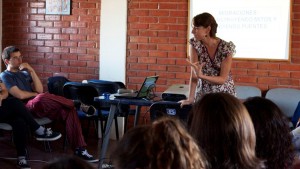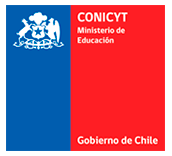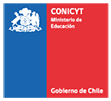News
CIHDE Researcher analyzed problems of immigrants in northern Chile in international workshop held in Greece
Published 09-08-2013
A paper entitled "Belonging and uprooting: the construction of the migrant experience in the Chilean northern border ", addressing the problems of those entering on the northern border of Chile, was the topic discussed in anthropology Dr., Menara Guizardi (CODECITE-CIHDE researcher, Regional Program of CONICYT), in an international workshop held in Corinth, Greece.
 This possibility is gestated after Guizardi part in the organization of an international symposium, within the framework of the 7th Congress of the European Council for Social Research in Latin America "Memory, present, future ", which took place in Porto, Portugal; occasion where he met Lina Ventura, professor at the University of Peloponnese, who now analyzes the conception of international migration policies, therefore invited to participate in the Greek Workshop.
This possibility is gestated after Guizardi part in the organization of an international symposium, within the framework of the 7th Congress of the European Council for Social Research in Latin America "Memory, present, future ", which took place in Porto, Portugal; occasion where he met Lina Ventura, professor at the University of Peloponnese, who now analyzes the conception of international migration policies, therefore invited to participate in the Greek Workshop.
Article exposed (where is coauthor Alejandro Garcés, Catholic University of the North) analyzed the migrant experience in the city of Arica, on the border between Chile and Peru; narrating how this space has been the scene of a national identity that helps build the Chilean ethnic paradigm, thought of as a relation of otherness against Peru and Bolivia, the "indigeniza".
Also, analyzed the construction of transnational human networks between Chile, Peru and Bolivia today, organized around the creation of a migrant labor market in Arica, observing the legal specificity of migrants in this area, reviewing complex bilateral national agreements that enhance a certain freedom of flow in the border region, while hindering the flow to other parts of Chile.
They analyzed how international agreements signed by Chile (by International Organization for Migration, IOM; and the World Health Organization, WHO) concerning the protection of labor rights, human and migrant health (documented or not), Chile despite having constitutional weight, are embodied integrally.
"Chile has two legal paradoxes in relation to the rights of migrants in their territory. The first relates to, on the one hand, the country signed numerous conventions, international treaties and agreements concerning the situation of the foreign population, guaranteeing their rights in education, health, territorial circulation, work-. But on the other hand, Chile has a deficient internal migration legislation, given in periods of military dictatorship and charged a national ideology any alien classified as a potential threat ", says in his work Menara Guizardi.
In his fieldwork, anthropologist that: "Did three training workshops on migration and migrant rights officials (nurses, medical, Dentists, physiotherapists, administrative staff) two public health posts in Arica, in which is recorded a significant number of users mainly Peruvians and Bolivians (although Colombian and Ecuadorian), instance that was with the NGO Global Citizen. Before starting the workshops, distribute questionnaires care rights of migrants, answered anonymously by officials. The results clearly illustrate the national exclusion mentality that operates in the imaginary of these workers. Of the 49 Workshop participants, 16 (33% total) agreed with that Chileans should have more rights in public services for immigrants, while 31 people (63%) raised their disagreement and 2 (1%) preferred not to comment on ".
Finally, CODECITE researcher-CIHDE added that due to the methodology used and the geographical focus of the study was, work was well received by the attendees of the workshop, making interesting contacts to further develop future jobs.
Related News
News

02-12-2019
CEAZA contributes to the improvement of professionals in the field of microorganisms and adaptation to climate change,,es,Attendees at the Workshop of Native Microbial Biodiversity,,es,Adaptation and interaction under extreme conditions,,es,How does agriculture benefit from the use of microorganisms?,,es,How can a crop be adapted to water and salt stress?,,es,These were part of the questions that guided the Native Microbial Biodiversity Workshop developed at the CEAZA Scientific Center,,es,Climate change is also affecting microscopic aspects of our reality.,,es,those that were addressed in the,,es,“Native Microbial Biodiversity Workshop,,es,Adaptation and interaction under extreme conditions ”,,es
News

29-11-2019
Ministerio de Ciencia acerca la Inteligencia Artificial a la ciudadanía con seminarios gratuitos en regiones
News

04-10-2019




Leave a Reply